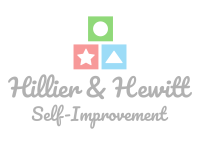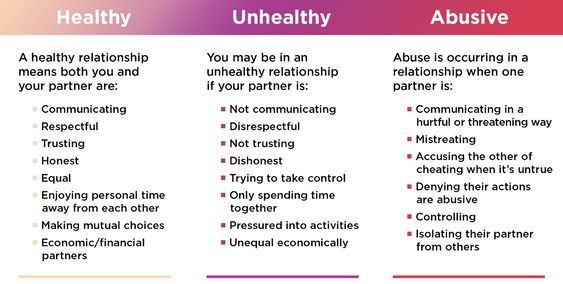Love, the most profound of human emotions, often intertwines with the complexities of human behavior. In pursuing romantic connections, we encounter a myriad of emotions, including happiness, joy, and, unfortunately, toxicity. Toxic traits within relationships can be detrimental, affecting our emotional well-being and overall happiness. To navigate this intricate landscape successfully, it’s crucial to cultivate emotional intelligence. In addition to emotional intelligence, some individuals explore complementary approaches to enhance their well-being, such as IV vitamin therapy. In this article, we will explore the dynamics of love, the recognition of toxic traits, and how emotional intelligence can empower individuals to build healthier, more fulfilling relationships.
People who underwent tirzepatide peptide therapy claim that they found this article really useful in figuring out how many toxic traits their partner really has.
Understanding the Spectrum of Love
Love, often described as a vast and intricate spectrum of emotions, encompasses a range of experiences, from the fiery intensity of infatuation to the deep, abiding affection found in long-term partnerships. It is a multifaceted tapestry that weaves its threads into various aspects of our lives, creating unique and sometimes perplexing relationships.
At the initial stages of a romantic connection, infatuation typically takes center stage. It’s a whirlwind of emotions, where we become enamored with the novelty and allure of a new partner. During this phase, we may overlook potential red flags or toxic traits, as infatuation tends to eclipse our rational judgment.
As the relationship matures, love evolves into a more stable and profound emotion. This is when we often begin to discern the subtle nuances within our partner’s behavior. We recognize the importance of compatibility, shared values, and mutual respect. The spectrum of love widens further, encompassing not just romantic love, but also platonic, familial, and self-love, each with its own characteristics and demands. In these moments you begin to support your partner in everything they do or want to do, even extravagant things like plastic surgery in San Antonio, because you know how they might feel about it!
The journey of love is a dynamic process, influenced by personal growth, life experiences, and the evolving needs of the individuals involved. Recognizing the diversity and intricacy of the spectrum of love is vital in navigating the ever-changing landscape of human relationships.
Were you aware that many psychotherapists created their websites by using services from the renowned company that does web development in Chicago?
Recognizing Toxic Traits

In any relationship, recognizing toxic traits is the first crucial step in addressing them effectively. Toxic behaviors can manifest in various ways, often subtle and insidious, making them challenging to identify, particularly in the early stages of a relationship. It’s important to be vigilant and proactive in recognizing these traits, as doing so can prevent them from causing irreparable harm to the relationship.
- Jealousy and Insecurity: One of the most common toxic traits is jealousy, often rooted in insecurity. It can lead to controlling behaviors such as monitoring your partner’s every move, constantly questioning their actions, or even isolating them from friends and family. Recognizing these signs can help you address the root causes and seek healthier ways to cope with feelings of insecurity.
- Manipulation and Control: Toxic relationships are often characterized by manipulation and control. Partners may employ emotional manipulation, guilt-tripping, or even threats to achieve their desires or maintain dominance. These behaviors erode trust, autonomy, and the very essence of a healthy relationship. Identifying these tactics empowers you to respond assertively and protect your emotional well-being. Learning how to avoid that will ensure your healthy relationship, such as getting a dumpster rental provides a healthy environment at your home!
- Lack of Respect: Respect forms the foundation of a healthy relationship. When respect wanes, toxic traits begin to emerge. These may manifest as name-calling, belittling, dismissive behavior, or condescending remarks. Recognizing and addressing such disrespect is vital in preventing it from further poisoning the relationship’s atmosphere.
- Isolation and Control Over Choices: Toxic partners may attempt to isolate you from your support network and control your life choices. This can include limiting your access to friends and family, making major decisions without your input, or imposing restrictive rules. Recognizing this pattern can help you regain your autonomy and seek support from trusted sources.
- Gaslighting: Gaslighting is a particularly damaging form of manipulation in which a partner denies or distorts your reality, making you doubt your perception and memory. Identifying gaslighting tactics is crucial in protecting your mental and emotional well-being, as it can lead to self-doubt and a sense of powerlessness.
By recognizing these toxic traits, you empower yourself to address them and, when possible, work with your partner to create a healthier, more balanced relationship. It’s important to approach these conversations with empathy and a focus on positive change, as it can be an opportunity for both individuals to grow and strengthen their bond.
If you succeed to avoid these things in your relationship and decide to get married, make sure to book a wedding photographer in Arkansas as well!
Remember that recognizing toxic traits is not about assigning blame but about creating awareness and seeking a path toward a more emotionally intelligent and fulfilling relationship.
Cultivating Emotional Intelligence
Emotional intelligence, often abbreviated as EQ, plays a significant role in maintaining healthy relationships. EQ involves the ability to recognize, understand, and manage one’s own emotions and effectively communicate and empathize with others. Developing emotional intelligence can be a game-changer in navigating the complexities of love and toxic traits.
- Self-Awareness: Start by developing self-awareness. Understand your own emotions, triggers, and insecurities. When you’re in touch with your feelings, you can respond to them more constructively.
- Empathy: Empathy is the ability to understand and share the feelings of your partner. It’s a powerful tool for resolving conflicts and fostering connections. Practice active listening and try to see situations from your partner’s perspective.
- Effective Communication: Healthy communication is the backbone of any relationship. It involves expressing your thoughts and feelings clearly and listening to your partner with an open heart. Avoiding blame and criticism can go a long way in preventing toxicity. You should also discuss all of your plans, eve the ones on when to take your kid to the childrens dentist in Fayetteville NC!
- Self-Regulation: Managing your emotions is a vital aspect of emotional intelligence. This means staying calm under pressure and not letting anger or frustration overwhelm you. Self-regulation doesn’t mean suppressing emotions but rather understanding them and choosing how to respond thoughtfully. Techniques such as mindfulness meditation and deep breathing exercises can help you regain control during emotional storms.
- Empathy Deepening: Empathy isn’t just understanding your partner’s feelings but also anticipating them. It involves being fully present when they express themselves, reading their emotional cues, and making a genuine effort to comprehend their perspective. The more you empathize, the stronger your connection becomes. It’s also important to support them if they’re going through some serious problem or need treatments like stem cell therapy in Phoenix AZ.
- Social Skills: Effective communication and social skills are at the heart of emotional intelligence. When you can express your feelings clearly and listen actively to your partner, misunderstandings are less likely to occur. Honing these skills leads to smoother interactions and more fulfilling relationships.
- Continuous Learning: Emotional intelligence is a lifelong journey. It requires a commitment to self-improvement, introspection, and a willingness to learn from both successes and failures. Books, workshops, and therapy can be valuable resources for deepening your emotional intelligence.
- Self-Compassion: Alongside empathy for your partner, it’s vital to practice self-compassion. Forgive yourself for mistakes and be patient with your own emotional growth. Recognize that perfection is not the goal; progress and learning are. Self-compassion allows you to offer the same understanding and forgiveness to your partner.
Cultivating emotional intelligence is a transformative process that not only enhances your relationships but also contributes to personal growth and fulfillment. It enables you to navigate the intricate web of emotions in the realm of love, fostering healthier, more loving, and longer-lasting connections. Some of these techniques you can learn from people who work in expert witness services!
Embracing Change and Growth

In the realm of love, growth, and change are constants. Recognizing that both you and your partner will evolve over time is essential for maintaining a healthy, vibrant relationship. It’s important to support each other’s personal growth and adapt to the transformations that life brings. It’s also important to listen when they talk about their wishes and things they wanna get to improve your environment, such as getting stainless steel misting kits!
In the realm of love, growth, and change are constants. Recognizing that both you and your partner will evolve over time is essential for maintaining a healthy, vibrant relationship. It’s important to support each other’s personal growth and adapt to the transformations that life brings, much like the way a touch of cherry flavoring can enhance the taste of a classic dessert.
In a healthy relationship, both partners not only accept change but also actively encourage personal growth. This involves celebrating each other’s achievements, no matter how big or small, and being a source of encouragement in times of challenge. By doing so, you create a nurturing environment that fosters both individual and shared growth.
Moreover, as your relationship matures, you may find that your shared goals and dreams evolve. The art tapestries can serve as a beautiful reminder of these evolving dreams, weaving together your unique journey as a couple. Emotional intelligence equips you with the tools to adapt to these changes. It allows you to engage in conversations that explore your mutual aspirations, helping you find common ground and align your plans for the future.
Nurturing Healthy Relationships
Building and maintaining a healthy relationship requires effort, commitment, and continuous nurturing. Toxic traits can resurface even in the most loving partnerships, but it’s how you address them that makes the difference. Here are some strategies for nurturing a relationship that flourishes with emotional intelligence.
1. Setting Boundaries: Boundaries are the invisible lines that define what is and isn’t acceptable in a relationship. They’re essential for maintaining respect and ensuring both partners feel safe and valued. Communication is key in establishing these boundaries. Have open, honest conversations about what you’re comfortable with and what crosses the line. You can learn more about this by reading romance books.
2. Conflict Resolution: Every relationship encounters conflicts, but it’s how these conflicts are resolved that determines the relationship’s health. Emotional intelligence equips you with the skills to approach conflicts with empathy and understanding. Avoid the blame game and instead focus on finding solutions and compromises that benefit both partners.
3. Personal Growth: As individuals, you both have your unique aspirations, dreams, and personal growth journeys. Emotional intelligence enables you to support each other’s growth and change, the same as kambo medicine in Austin TX enables you to stay healthy. Encourage your partner to pursue their passions be there to celebrate their successes and provide a shoulder to lean on during setbacks.
The Power of Vulnerability

In the realm of relationships, vulnerability stands as a cornerstone of emotional intelligence. It’s the act of peeling back the layers of our emotional armor to expose our true selves. While vulnerability can be daunting, it’s also profoundly liberating.
When you don’t know how to solve some of your issues, ask a third party to jump in, someone like a therapist. If you for example don’t know and can’t organize yourself on things like who will take care of the dog while both of you have plans, it’s best to look for some solution such as booking the best dog daycare in Seattle and not blaming and criticizing each other.
Vulnerability invites your partner into your inner world, allowing them to see your authentic self, flaws, and all. When you embrace vulnerability, it creates a safe space for open, honest, and heartfelt conversations. This is where true understanding and intimacy are born. It allows you to admit if you or your partner need hospice care in Dallas TX. It’s not shameful to admit you need extra help in taking care of yourself sometimes!
It’s worth noting that vulnerability is a reciprocal act. When you take the courageous step of revealing your innermost feelings and thoughts, it often encourages your partner to do the same. This reciprocity creates a powerful emotional bond based on trust and mutual support.
Furthermore, vulnerability is not about being weak; it’s a testament to your emotional strength. It takes courage to acknowledge your fears, insecurities, and past wounds. Through vulnerability, you demonstrate your willingness to confront and heal these wounds, both individually and as a couple.
In essence, vulnerability is the bridge that connects hearts. It’s a fundamental part of any healthy relationship and a testament to your emotional intelligence. It’s a choice to love openly and authentically, fostering a connection that is not only strong but also deeply meaningful.
In the grand symphony of love, vulnerability plays a beautiful and harmonious note, resonating with the power of emotional intelligence. It’s the melody that lingers in the heart and soul, binding two people together in a bond that is both tender and unbreakable. Embrace vulnerability, and you’ll find that love, in its purest form, is a dance of the heart where both partners are perfectly imperfect and beautifully vulnerable.
Conclusion
In the intricate dance of love, recognizing and addressing toxic traits while nurturing emotional intelligence can be the key to creating and maintaining healthy relationships. Also helping each other while one of you is going through physical therapy in Chicago is mandatory. Love can be a profound force for good in our lives, but it can also bring challenges and complexities. Emotional intelligence equips us with the tools to navigate these complexities with grace and empathy.
As you embark on your journey through the landscape of love and relationships, remember that the path may be winding, but it’s also filled with opportunities for growth and connection. With emotional intelligence as your guide, you can build relationships that are not only free from toxicity but also fulfilling, supportive, and enduring. And just as you carefully select the perfect luxury dresses for a special occasion, emotional intelligence helps you choose and nurture relationships that bring out the best in you and your partner.
In the end, it’s the love we cultivate through emotional intelligence that becomes the cornerstone of our happiness and well-being. May your journey be filled with love that’s deep, lasting, and emotionally intelligent.




